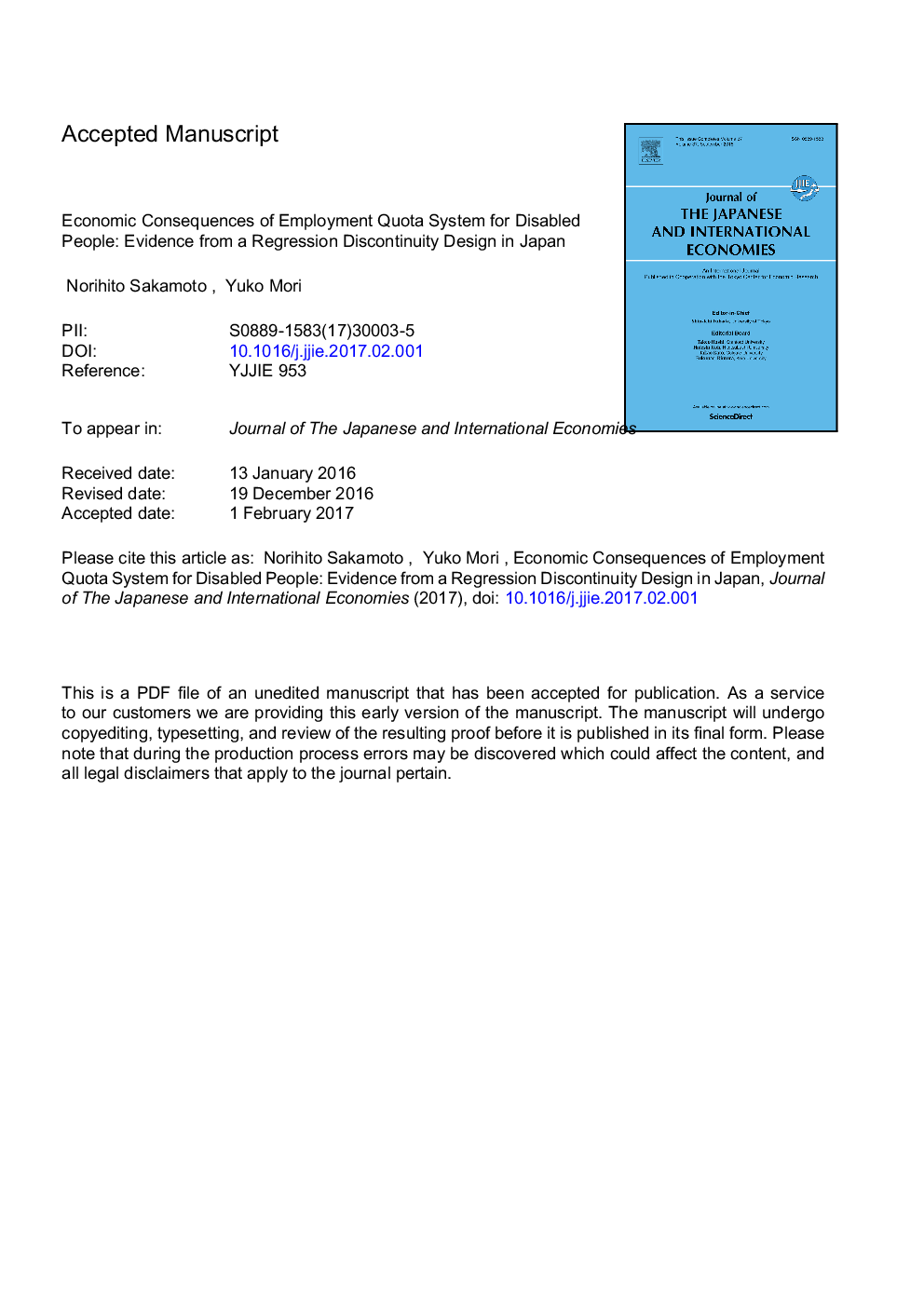| Article ID | Journal | Published Year | Pages | File Type |
|---|---|---|---|---|
| 7366227 | Journal of the Japanese and International Economies | 2018 | 53 Pages |
Abstract
This study examines the effect of Japanese employment quota system for disabled people on their employment. By using administrative data from Japan, we show that a levy-grant scheme increases the employment of disabled workers in Japan's manufacturing industry. In addition, we find that small-sized firms hire disabled workers when increasing firm size, although they are not obligated to pay levies. Finally, we use the number of disabled workers assigned by the quota system as an instrumental variable (IV) to evaluate the impact of disability employment on a firm's profit rate. The results of the fuzzy regression discontinuity design (RDD) suggest that an increase in the number of disabled workers does not necessarily decrease a firm's profit rate, which is in contrast to the results of the ordinary least squares (OLS) regression that suggest a negative relationship between the profit rate and disability employment.
Related Topics
Social Sciences and Humanities
Economics, Econometrics and Finance
Economics and Econometrics
Authors
Yuko Mori, Norihito Sakamoto,
